- Church times - 9th February 2026
- Up, up and away… - 6th February 2026
- Lucy in the sky behind bars - 5th February 2026

During more than 41 years in journalism (when he was trained to use simple language, avoiding jargon) for our Editor, Welshman Phil Parry (who spent 23 years with the BBC), covering major events which turned out to have huge historical significance was paramount, so he looks askance at how media outlets are getting facts about them wrong today, and he views with interest now the chorus of disapproval over holding an inquiry into one of the most contentious episodes many years after it happened.
The miners’ strike, protests for a second Welsh language act, the opening of the Second Severn Crossing (SSC) (as it was then called), and a referendum on establishing devolution, as well as the opening of the Welsh Assembly (its original title) which resulted – you had no idea when you covered these things that they were enormously important events.
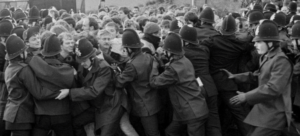
This only became evident in hindsight.
Take for example the miners’ strike, because it is very much in the news now with a controversial decision to hold an inquiry into one of the most headline-grabbing incidents during it which took place more than 40 years ago – Orgreave.
Reporting this news one media outlet said that it took place in 1987, when in fact it was June 16 1984!
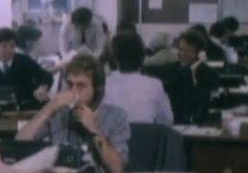
This was a key date in what was a major historical event (the miners’ strike was between 1984 and 1985 incidentally), and it would only have taken a couple of taps on the computer to find out the true date!
At the time the strike dominated headlines in the paper I was on – the South Wales Echo (SWE) – and it lasted so long that journalists remarked on it.
A friend described to me how he watched as striking South Wales miners played football in the sun, then huddled round a brazier, then played football in the sun again!
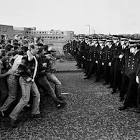
We were directed to where the pickets would be on the day by a National Union of Mineworkers (NUM) official, who went on to become a leading member of the UK Government.
In the early days the confrontations between the police and miners would be like a huge rugby scrum, but towards the end of the strike the protests as men returned to work would be more tokenistic than anything else.
I remember very clearly gathering at St. John’s Colliery in the Llynfi Valley, as one valiant worker (or ‘scab’ depending on your point of view) was bussed into the pit in early 1985.

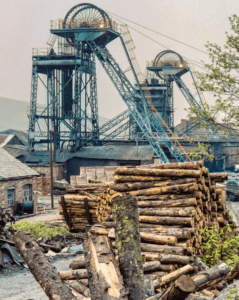
The mine had originally been sunk in 1908 going on to be run by the National Coal Board (NCB), but it closed soon after the strike ended in 1985 (the last deep mine in the Llynfi Valley).
A few desultory insults were hurled at the bus, but there wasn’t any real violence, unlike at the start of the strike.
There was a lot of violence at Orgreave in South Yorkshire, though, in the previous year.
The clash there became known as the ‘Battle of Orgreave’ when pickets and officers of the South Yorkshire Police (SYP) and other police forces fought each other.
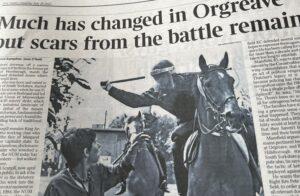 There is now to be an inquiry into what happened, but the announcement about it has been highly controversial because so much time has passed.
There is now to be an inquiry into what happened, but the announcement about it has been highly controversial because so much time has passed.
The inquiry, expected to launch in the autumn, will investigate the events surrounding the clashes which resulted in 120 injuries.
In total, 95 picketers were arrested and initially charged with riot or violent disorder, but all charges were later dropped after evidence was discredited.

The inquiry will be statutory, with the appropriate powers used to compel people to provide information where necessary.
In announcing it, the Home Secretary Yvette Cooper proclaimed: “…what happened at Orgreave cast a shadow over communities in Yorkshire and other mining areas”.
“The violent scenes and subsequent prosecutions raised concerns that have been left unanswered for decades, and we must now establish what happened”.
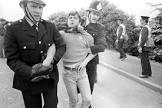
But how, for example, do you compel people to attend to ‘establish what happened’ when they are no longer with us?
A columnist in The Times said: “Some of the miners injured or arrested at Orgreave are now dead and many others are old and ill. Witnesses able to give critical evidence may have passed away or could prove hard to track down. Their recollection of events will inevitably be distorted by the passage of time”. He added: “There are surely myriad better ways to spend taxpayer money…”.
‘Passage of time’ makes the memories of a reporter seem all-important. But then the only thing on your mind was meeting the deadline!

The memories of Phil’s astonishing, decades long award-winning career in journalism (when events like the miners’ strike loomed large) as he was gripped by the rare neurological disabling condition Hereditary Spastic Paraplegia (HSP), have been released in a major book ‘A Good Story’. Order it now.
Tomorrow – how news that disgraced Gregg Wallace has again blamed his Autism for his shocking behaviour but been attacked by charities, in fresh headlines about the latest of a string of scandals to engulf the BBC, highlights the giant corporation’s REFUSAL to answer our questions about them.








